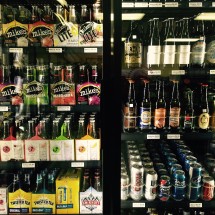Law Offices of John P. Connell, P.C.: In the business of distributing of alcoholic beverages, branding means everything. Manufacturers such as wineries, distilleries and breweries spend a great deal of money every year acquiring, maintaining and protecting their brand labels. Their labels are the only thing that differentiates them from competition, as products are sold in almost universally undistinguishable containers such as bottles and cans.
In addition to obtaining trademark protection to secure each company’s brand labels from infringement of other manufacturers, certain segments of each alcoholic beverage manufacturing industry band together from time to time, to protect the labels that are associated with their product’s country of origin, their local region within a county, or even their “type” of product. Such an alliance by companies that would otherwise be competitors has erupted this past week in the brewing industry.
On the heels of financial news from alcoholic beverage industry reporters, Anheuser-Busch InBev, SABMiller and Heineken all lost significant market share over the first half of this year to independent and small craft brewers. A trade group representing over 1,900 craft brewers nationwide accused these mass producers of beer of engaging in deceptive labeling practices which could draw in the attention of federal regulators. In particular, on December 13, 2012, the Colorado based Brewers Association accused Anheuser-Busch InBev and other major manufacturers of “deliberately attempting to blur the lines between their crafty, craft-like beers and true craft beers from today’s small and independent brewers.”
“We call for transparency in brand ownership and for information to be clearly presented in a way that allows beer drinkers to make an informed choice about who brewed the beer they are drinking,” the Brewers Association said. The group singled out Blue Moon and the Shock Top line. Those popular beers are owned and produced by, respectively, SABMiller, the same company that makes Miller Lite, and AB-InBev, the Belgium-based purveyor of the ubiquitous Budweiser and Bud Lite.
While the trade group claims not to have taken steps toward asking the Federal Trade Commission to force the disclosure of corporate ownership on labels, the groups’ particular criticism of Anheuser-Busch InBev comes at a time when that conglomerate is attempting to seek approval from the U.S. Department of Justice to complete the purchase of the company that produces Corona Beer which, according to published accounts, is being held up due to the Department of Justice’s concern that Anheuser-Busch InBev is developing a monopoly in the beer industry.
While potentially holding up Anheuser-Busch InBev may be the short term result of the Brewer Association’s assault on “crafty” labeling, such a lobbying campaign may, in the end, result in labeling requirements that identify whether a mass produced beer such as “Shock Top” will need to disclose on its label that it is actually produced by Anheuser-Busch InBev. Such disclosures may expedite the already growing craft brewers’ market share that, although only approximately 6% of the total beer market, has grown 14% during the first half of this year, all at the expense of the companies that make mass produced labels.
Requiring disclosure on beer labels that it is a product of a large “mass producing” manufacturer may have an effect in the wine and spirits industry as well, as the alcoholic beverage marketplace as a whole seems to be trending towards labels that are associated with higher quality, rather than lower cost. As smaller independent manufacturers are generally associated with higher quality and a greater devotion to their product, a class war of sorts may be on the industry’s horizon when it comes to label disclosures.
© Law Offices of John P. Connell, P.C., 2012.

